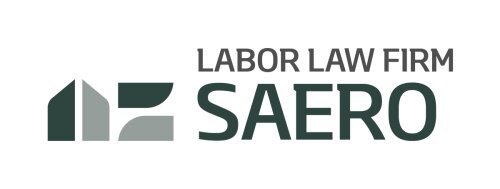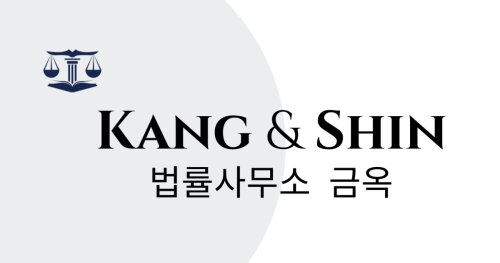Best Employment Benefits & Executive Compensation Lawyers in Seoul
Share your needs with us, get contacted by law firms.
Free. Takes 2 min.
List of the best lawyers in Seoul, South Korea
About Employment Benefits & Executive Compensation Law in Seoul, South Korea
Employment Benefits & Executive Compensation law in Seoul, South Korea, encompasses a range of legal frameworks designed to regulate the relationship between employers and employees regarding benefits and compensation packages. These laws ensure that employees receive fair and equitable benefits such as pensions, health insurance, and bonuses, while also managing the intricacies of executive pay packages, including stock options and severance pay. Given the vibrant economic environment of Seoul, these laws are crucial for maintaining harmonious employer-employee relationships and protecting workers' rights.
Why You May Need a Lawyer
There are several scenarios in which individuals or businesses may require legal assistance in Employment Benefits & Executive Compensation:
- Complex Compensation Packages: Executives often have intricate compensation packages beyond standard wages. Legal advice can help ensure compliance and clarity.
- Benefit Disputes: Employees who face disagreements over entitlements, such as pensions or health benefits, may need legal support to resolve these issues.
- Policy Development: Employers drafting or revising benefit packages to align with evolving laws or company policies might seek legal expertise.
- Contract Negotiations: Understanding and negotiating terms related to bonuses, stock options, and severance requires legal insight to safeguard interests.
- Compliance with Regulations: Companies must adhere to local laws overseeing employment benefits, necessitating legal advice to avoid penalties.
Local Laws Overview
Seoul's Employment Benefits & Executive Compensation laws are designed to ensure fairness and transparency. Key legal considerations include:
- Labor Standards Act: This Act provides the foundation for employee rights, dictating minimum standards for working conditions and benefits.
- National Pension Act: Employers must comply with mandatory pension contributions for employees, impacting retirement planning and financial security.
- Health Insurance System: Employers are required to enroll their employees in the National Health Insurance program, necessitating careful compliance.
- Executive Compensation Disclosure: Publicly-listed companies must transparently disclose executive compensation, promoting accountability and investor confidence.
- Severance Pay Regulations: Specific laws govern severance pay entitlements, influencing negotiations and termination agreements.
Frequently Asked Questions
1. What is the minimum standard for employee benefits in Seoul?
Employers in Seoul must comply with the Labor Standards Act, which sets minimum standards for various employee benefits, including leave entitlements and severance pay.
2. Are employers required to provide health insurance?
Yes, employers must enroll their employees in the National Health Insurance program, contributing a portion alongside the employee to ensure coverage.
3. How can an employee resolve a dispute over unpaid bonuses?
Employees can seek resolution through mediation or, if necessary, pursue legal action to claim their entitlements under South Korean labor laws.
4. What are the obligations regarding pension contributions?
Both employers and employees must contribute to the National Pension Scheme, with specific contribution rates outlined by the National Pension Act.
5. How are executive compensation packages regulated?
Executive compensation packages in publicly-listed companies must be disclosed to ensure transparency and compliance with investor protection regulations.
6. What should be included in an employment contract regarding benefits?
An employment contract should clearly outline all benefits, including health insurance, pension contributions, bonuses, and any other relevant compensation details.
7. Can employees negotiate severance pay terms?
Yes, employees can negotiate severance terms, but the final agreement must adhere to the minimum statutory requirements set by local laws.
8. How does taxation affect executive compensation?
Executive compensation is subject to South Korea's tax regulations, and legal advice can help in structuring these packages to optimize tax efficiency.
9. Are part-time workers entitled to the same benefits as full-time employees?
Part-time workers are entitled to certain benefits, although the specifics can vary. It's essential to consult legal expertise to ensure compliance with relevant laws.
10. What legal measures exist to protect employee benefits?
South Korea has stringent laws to protect employee benefits, including regulatory bodies that oversee compliance and offer recourse for employees facing benefit loss.
Additional Resources
- Ministry of Employment and Labor (MOEL): Offers guidance on labor rights and obligations including employment benefits.
- National Pension Service (NPS): Provides information on pension contributions and schemes.
- Health Insurance Review & Assessment Service (HIRA): Responsible for health care quality reviews and medical cost management in South Korea.
- Korea Employment Information Service: Offers data and resources related to employment trends and regulations.
Next Steps
If you need legal assistance in Employment Benefits & Executive Compensation, consider following these steps:
- Consult a Legal Expert: Engage a lawyer specializing in employment law to navigate complex legal landscapes effectively.
- Gather Relevant Documents: Compile all relevant documents, including employment contracts, compensation agreements, and benefit statements, to facilitate legal review.
- Understand Your Rights: Educate yourself about local laws and your entitlements to better position yourself in legal negotiations or disputes.
- Seek Mediation Services: Before resorting to litigation, consider mediation to resolve disputes amicably and quickly.
By taking these steps, you can better manage employment benefits and executive compensation issues and ensure your rights and obligations are protected under South Korean law.
Lawzana helps you find the best lawyers and law firms in Seoul through a curated and pre-screened list of qualified legal professionals. Our platform offers rankings and detailed profiles of attorneys and law firms, allowing you to compare based on practice areas, including Employment Benefits & Executive Compensation, experience, and client feedback.
Each profile includes a description of the firm's areas of practice, client reviews, team members and partners, year of establishment, spoken languages, office locations, contact information, social media presence, and any published articles or resources. Most firms on our platform speak English and are experienced in both local and international legal matters.
Get a quote from top-rated law firms in Seoul, South Korea — quickly, securely, and without unnecessary hassle.
Disclaimer:
The information provided on this page is for general informational purposes only and does not constitute legal advice. While we strive to ensure the accuracy and relevance of the content, legal information may change over time, and interpretations of the law can vary. You should always consult with a qualified legal professional for advice specific to your situation.
We disclaim all liability for actions taken or not taken based on the content of this page. If you believe any information is incorrect or outdated, please contact us, and we will review and update it where appropriate.














